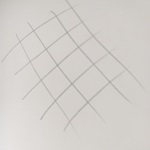Selected Reviews
Adi Sorek's Penetrating Vision | Einat Yakir
This wonderful book asks questions about the space available to the author, and perhaps her right to tell her story.
Sorek has no solution to these quandaries beyond the decision, so very difficult to make, to begin anew, time after time. We can think of the fragments or sharp snapshots gathered together in this book as the only form of speech possible. Her writing, its bits and pieces, is an act devoid of hierarchy, of rank or sequence; it lacks a beginning but also an end, being a vibrating middle in its entirety, always scintillating. The conditions of her writing evolve into constant negotiation, with one of its most outstanding results being the restraint and serenity characterizing the author's poetics. She writes this way not to cradle our memory or to forget – no, she does so in order to remember.
Within the violent, raucous space in which literature is written, the instinct to suppress speech awakens. Sorek's voice nonetheless penetrates this space; it will not be silenced. This voice is hard and crystal-clear; it discourages sleep, in its so radical insistence to subject her identity to persistent examination, onto death.
The Haaretz Literary Supplement / 12 August 2013
Testing the Limits of Literature | Eli Eliyahu
Sorek's poetics are startling in the way that she reveals what lies latent to the reader: The story's skeleton, as well as the moods, wounds, flawed politics and empty spaces that become visible during the act of writing.
Gallery, the Haaretz Supplement 8/7/2013
Perhaps It was only a Dream | Yonatan Amir
In another place the author comes face-to-face with an overrunning and disgusting garbage container: "Maybe, if I were in Europe, it would resemble a Bruegel painting, but it was such a Middle Eastern bin, so Israeli, green and big and dirty and hot and near the beach next to a parking lot, with flies and cooked chicken carcasses and rice and tomatoes."
Every sentence exudes a sense of crisis. Often, this crisis is explained by separation from family, fear, a sudden political insight, sexual harassment on a bus or an encounter with a drunken homeless person, lying like a mound of meat in the middle of the street. Frequently, that crisis is also a literary crisis. Each event is described in graceful, somewhat aloof language; like a glowing light in a photograph, it also consistently testifies to Sorek's own ability to see and to describe: "Her neighbor's wild face, who had returned to the doorway in the meantime, signaled that other things had also happened here."
Israel Today / 16 August 2013
